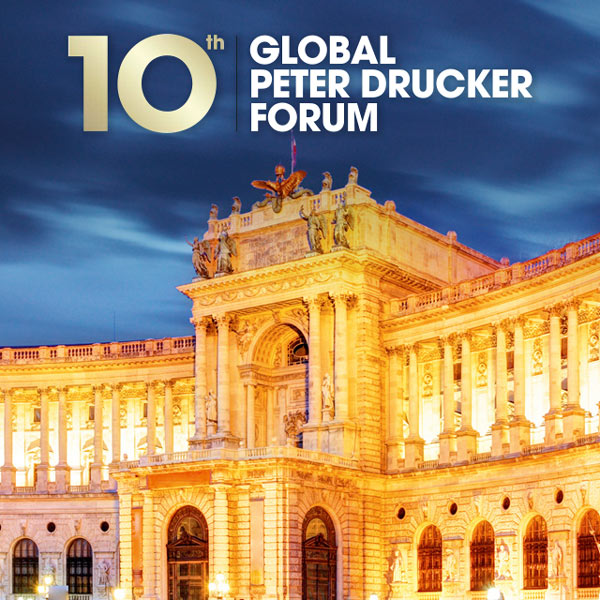10th Global Peter Drucker Forum
The Brightline Initiative will be present at the 10th Peter Drucker Forum to present our work including research, guiding principles aiming to bring ideas to life by the proper connection between Strategy Design and Delivery.
**"What would robots do if humans took over?"*** The joky question posed by Shagun Tripathi at the Global Peter Drucker Forum 2017 raises a fundamental issue. It prompts us to remember that the economy, technology, business and government are not givens – they are shaped by human choice...
Introduction to the Drucker Forum 2018
by Richard Straub
**"What would robots do if humans took over?"*** The joky question posed by Shagun Tripathi at the Global Peter Drucker Forum 2017 raises a fundamental issue. It prompts us to remember that the economy, technology, business and government are not givens – they are shaped by human choice. Yet it also forces us to recognize that the human perspective has been increasingly sidelined in the way we think about and enact the relations between technology and society, leaving the most precious, human, potential undervalued and underused. "Taking over" means actively shaping the organizations of the future and taking on a different mind-set: Should leaders in the 21st century become as good in understanding the human dimension as they are in grasping the latest scientific discovery, technology or management technique? Should they be able to frame challenges differently and ask different questions? At best, should we more actively manage the creation of our own future?
The relentless encroachment of machine intelligence into domains that were previously human raises important issues around the role of individuals in decision making, improvisation in the face of sudden events, and innovation. Likewise, the disruption of existing structures by the platform economy brings pressing questions of coherence and a new social settlement for the future into the frame. What are the consequences for the learning and competencies of 21st century managers? How can strategy be developed, and work reliably performed in a age when pressure and instability are constant and increasing?
All today’s institutions and organizations face a similar challenge by turning needs into value for others, for themselves and wider society. Can we do that through the application of “hard” technocratic logic – or do we need a fundamental reset, as Charles Handy powerfully suggested at the 2017 Drucker Forum? What place do we give to the human in organizations? What are the new role models? The answers will have profound consequences for the practice of management and the type of leaders required for our institutions.
Aristotle defined three dimensions of human intelligence: episteme (intellect), techne (craft) and phronesis (practical wisdom and ethical values). In management they correspond to what we would call the “what”, the “how” and the “why”. Of course, managers must deliver performance – Peter Drucker was firm about that – yet at the moment humanity too often suffers as companies measure human capital as a cost rather than an asset. Reasserting the human dimension means above all asking the “why” questions that enable us to ponder deeply who we are, what we do and where we should be going. We may need to reframe issues beyond narrow positions; and reconcile apparently conflicting stances to create common ground. Bearing direct responsibility for confronting these issues in the workplace, management can light the fire – and must do it now, before it is too late.
